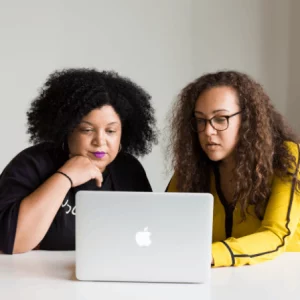

Education & Employability
Why is this a key area for the Centre?
As well as skills, experience and achievements, we know that education levels can influence a persons employment opportunities.
According to the Annual Population Survey:
- People who have no qualifications have an employment rate of 47%
- Those with level 2 qualifications have an employment rate of 72%
- Those with level 3 qualifications have an employment rate of 83%
- Those with level 4 and above qualifications have an employment rate of 87%


Rate of Exclusions
A report by No More Exclusions revealed that schools continue to exclude children excessively and disproportionately, with a staggering 3,628 exclusions reported by just 32 secondary schools between September and November 2020. Children from Pakistani, Black Caribbean, mixed white and Black Caribbean, and Gypsy, Roma and Traveller backgrounds were over-represented in these exclusions.
Comparison of disparities in exclusions among different ethnic groups in the UK may have many different causes such as socio-economic disadvantages but historically policies, practices, school procedures and the broader education system has been part of the issue.
The Sewell Report, 2021, describes the results of field experiments using job applications tests which showed discrimination against names that were recognised as not being traditionally ‘British.’ This evidences discrimination as a barrier to employment, despite the level of educational attainment. Nonetheless, the report recommends for further investigation into these findings.
Finally, following the Covid-19 pandemic, unemployment trends show there was an increase in unemployment for all people following the start of the pandemic, although the impact was greater on people from minority ethnic backgrounds.

Black children are most likely to be excluded from school, and represent the most excluded group of pupils (DfE 2015)

Black Caribbean children have rates of permanent exclusion about three times that of the pupil population as a whole (EHRC 2016, DfE 2015)

Black pupils are often excluded for challenging what is perceived to be teacher racism (DfE 2015)

95% of young black people in the UK have heard or witnessed racist language at school, 51% of males said they heard it all the time
To learn more about our work, sign up to our monthly newsletter
Our newsletter will give you insight into our ongoing projects, learning, upcoming events, training and more!
Some of Our Projects
Our Impact
Let’s work together
At SEEN, we pride ourselves on the work we do, and are striving to achieve our aims of creating a society where children and young people of African, Asian and Caribbean heritage have equitable futures – working with our partners to deliver these solutions. If you are interested in working with us on this, please get in touch below.







